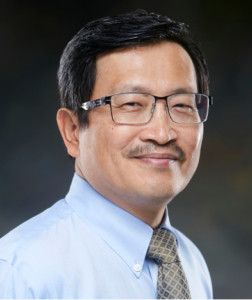 We study basic mechanisms of mammalian visual sensation at the molecular, cellular, and systems levels in the retina.
We study basic mechanisms of mammalian visual sensation at the molecular, cellular, and systems levels in the retina.
The Chen Laboratory, located in the South Texas Research Facility, is specialized in vision research with a focus on the roles of heterotrimeric G-proteins in the mouse visual system. We have identified and characterized genes such as G protein-coupled receptor kinase 1 (GRK1), Regulators of G-protein signaling 9 (RGS9), and G protein beta subunit 5 (GNB5) which are indispensable for the timely recovery of retinal rod and cone photoreceptors, as well as determined the deactivation of visual transducins as the rate-limiting step in the recovery phase of rod and cone phototransduction. We also unveiled the role of GNB5 and its obligate partners R7 RGS proteins including RGS7 and RGS11 at the first visual synapse between photoreceptors and retinal depolarizing bipolar cells. We currently collaborate with in-house and outside investigators to examine: 1) the mechanism and biological function of a novel phototransduction pathway called TMIP (transducin- and melanopsin-independent phototransduction) in the mouse retina; 2) the role trophoblast glycoprotein (TPBG) in the retinal TH2-AC wide-field amacrine cells; 3) the roles of TBR2-expressing displaced wide-field amacrine cells WAC-1 and WAC-2 in information processing in the retina; 4) the function and mechanisms of TBR2 in retinal ganglion cell development; 5) the mechanism and consequence of photoreceptor degeneration; and 6) comprehensive classification of retinal neurons using intrinsic membrane properties, dendritic morphologies, light response profiles, and single-cell analytics. We focus on basic research topics as it is the cornerstone of new knowledge that enables novel therapeutic and interventional modalities to mitigate diseases. The lab has been continuously funded by the National Eye Institute since 2002. We always welcome and cherish collaborative research opportunities. We are recruiting career partners with open minds and distinguished bench skills, as well as accepting M.S. and Ph.D. students.
